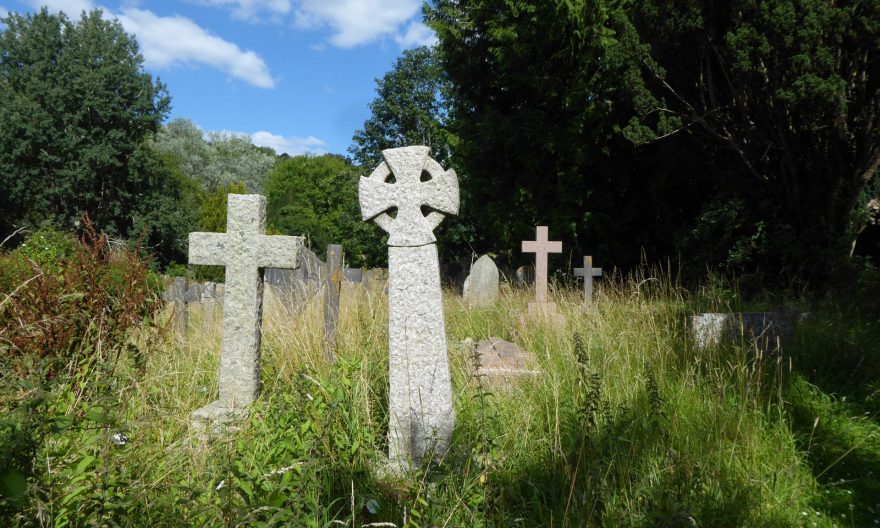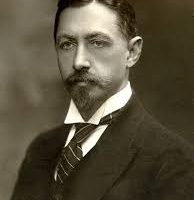
BY ALEM HAILU G/KRISTOS
Terseness and ambiguity are the top virtues of evaluating a given poem is a gem. Often short poems are held dear if they explode while revealing secrets or mysteries. At times narrative poems display a similar tendency.
Before we analyze the following narrative poem could you reread it and tell where it explodes?
Fidele’s Grassy Tomb
BY SIR HENERY NEWBOLT
The Squire sat propped in a pillowed chair, His eyes were alive and clear of care, But well he knew that the hour was come To bid good-bye to his ancient home.
He looked on garden, wood, and hill, He looked on the lake, sunny and still: The last of earth that his eyes could see Was the island church of Orchardleigh.
The last that his heart could understand Was the touch of the tongue that licked his hand: “Bury the dog at my feet,” he said, And his voice dropped, and the Squire was dead.
Now the dog was a hound of the Danish breed, Staunch to love and strong at need: He had dragged his master safe to shore When the tide was ebbing at Elsinore.
From that day forth, as reason would, He was named “Fidele,” and made it good: When the last of the mourners left the door Fidele was dead on the chantry floor.
They buried him there at his master’s feet, And all that heard of it deemed it meet: The story went the round for years, Till it came at last to the Bishop’s ears.
Bishop of Bath and Wells was he, Lord of the lords of Orchardleigh; And he wrote to the Parson the strongest screed That Bishop may write or Parson read.
The sum of it was that a soulless hound Was known to be buried in hallowed ground: From scandal sore the Church to save They must take the dog from his masters grave.
The heir was far in a foreign land, The Parson was wax to my Lord’s command: He sent for the Sexton and bade him make A lonely grave by the shore of the lake.
The Sexton sat by the water’s brink Where he used to sit when he used to think: He reasoned slow, but he reasoned it out, And his argument left him free from doubt.
“A Bishop,” he said, “is the top of his trade: But there’s others can give him a start with the spade: Yon dog, he carried the Squire ashore, And a Christian couldn’t ha’ done no more.
The grave was dug; the mason came And carved on stone Fidele’s name; But the dog that the Sexton laid inside Was a dog that never had lived or died.
So the Parson was praised, and the scandal stayed, Till, a long time after, the church decayed, And, laying the floor anew, they found In the tomb of the Squire the bones of a hound.
As for the Bishop of Bath and Wells No more of him the story tells; Doubtless he lived as a Prelate and Prince, And died and was buried a century since.
And whether his view was right or wrong Has little to do with this my song; Something we owe him, you must allow; And perhaps he has changed his mind by now.
The Squire in the family chantry sleeps, The marble still his memory keeps: Remember, when the name you spell, There rest Fidele’s bones as well.
For the Sexton’s grave you need not search, ‘Tis a nameless mound by the island church: An ignorant fellow, of humble lot— But. He knew one thing that a Bishop did not.
***
Among the main characters involved in this poem is found a loyal dog of Danish breed called Fidele’ having an English equivalent term fiddle, which means a faithful to his owner; in this case the Squire. The Squire that has a deep emotional attachment to the old and noticeably ailing dog, which once rescued his life dragging him out of an ebbing revert river, is sat on his pillow-propped-up-special chair (deathbed) that affords him a panoramic view of his surroundings presumably from his porch.
While the Squire was taking a last snapshot, the dog licked his fingers by way of expressing his unwavering affection and presence. At that point the Squire makes his desire clear the dog should be buried by his feet in the same tomb with him. Here, the Squire did predict that his and Fidele’ death is drawing nigh. Mourners who heard the Squire’s wish saw to things as they were ordered.
After the news circulated for some time a bishop hears about it and gets infuriated by how on earth a soulless animal (dog/Fidele’) is buried in the church’s cemetery. To spare the church a scandal the bishop decides he must act fast.
As such, in black and white, he orders the Parson to remove the skeleton of the dog. As the Heir, out of town, was not beside him the Parson had no means of dissuading the Bishop.
Following the order the Parson in his turn orders the Sexton ( a priest) to dig an isolated grave by the riverside obviously for the dog. The Sexton sleeps over the matter and decided to do something a trick—let a mason bury a dog that was neither born (lived) nor died. It is here the poem explodes revealing a secret that he let buried no dog. But on the tomb he ordered the mason inscribe the name Fidele’ to dupe the bishop and the like.
Thanks to the Sexton the loyal dog that showed faithfulness unmatched by any other Christian remained buried at the former burial ground by his master’s feet in the church’s cemetery. At the end the narrative poem once more explodes with a sarcasm layman— a Sexton (an ordinary priest whose job may be ringing bells) — knows such a secret hidden from a man of letters— a bishop.
After a lot of water passed under the bridge, when the reconstruction of the dilapidated church began, the masons found the remains of the dog Fidele along with that of the Squire. The poet behests the masons “don’t forget engraving here Fidele too lies’ on the tomb.”
The poet at the end notes the bishop’s outlook being right or not is not the objective of his narrative line but he thinks the bishop might himself have changed his view about the loyal dog that outperformed followers of the faith when it comes to fidelity.
The poet sarcastically notes the wise Sexton’s grave is just a mountain of muds and the bishop serving his term had passed away and long forgotten.
*****
Sir Henry John Newbolt, CH (6 June 1862 – 19 April 1938) was an English poet, novelist and historian.[1] He also had a role as a government adviser with regard to the study of English in England. He is perhaps best remembered for his poems “Vitaï Lampada” and “Drake’s Drum”.
THE ETHIOPIAN HERALD THURSDAY 17 NOVEMBER 2022

